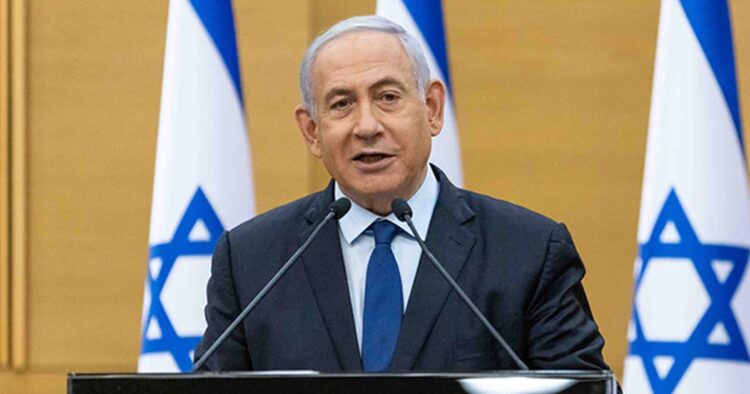All eyes are on Israel after Iran’s attack, but its war cabinet has not specified any preference for the course to follow, while allies who helped counter the strike call for caution.
Prime Minister Benjamin Netanyahu has yet to define time for a response to the first direct Iranian attack on Israeli soil. On Saturday in response to April 1 strike on the Islamic republic’s consulate in Damascus, it came in the form of over 300 drones and missiles launched from Iran.
Benjamin Netanyahu has met with his war cabinet twice, and called US President Joe Biden. Since Sunday Netanyahu hasn’t spoken publicly of the matter, when he praised the Israeli defence in a short post on X.
On Monday Israeli army chief Herzi Halevi told soldiers that Iran’s attack would be met with a response, but did not specify the timing. ‘There has been a lot of pressure over the last 48 hours on the Israeli government to respond’, said Iran researcher.
‘I’m not sure the Israeli government can avoid an immediate reaction, even if it doesn’t want to be engaged in a full-scale confrontation’, he added.
Zimmt said he would prefer to see some covert activity without Israel taking responsibility for that in Iran. National Security Minister Itamar Ben Gvir expressed the need for a hard response on the night of the Iranian launches.
‘Impressive defence until now now there must be a crushing attack’, the far-right minister said on X. Former prime minister Ehud Barak condemned the behaviour and denounced ‘those who want to set the entire Middle East on fire’.
Others, such as Knesset member Gideon Saar, appealed for patience. ‘Israel does not need to rush in its response and disrupt the priorities it set for itself’, Saar said on X. ‘Now, the focus needs to return to victory in Gaza: Toppling Hamas and freeing the hostages’.
Israel, praised and publicised its cooperation with the US, UK, and France, with support from regional actors such as Jordan in intercepting Iran’s attack.

















Comments